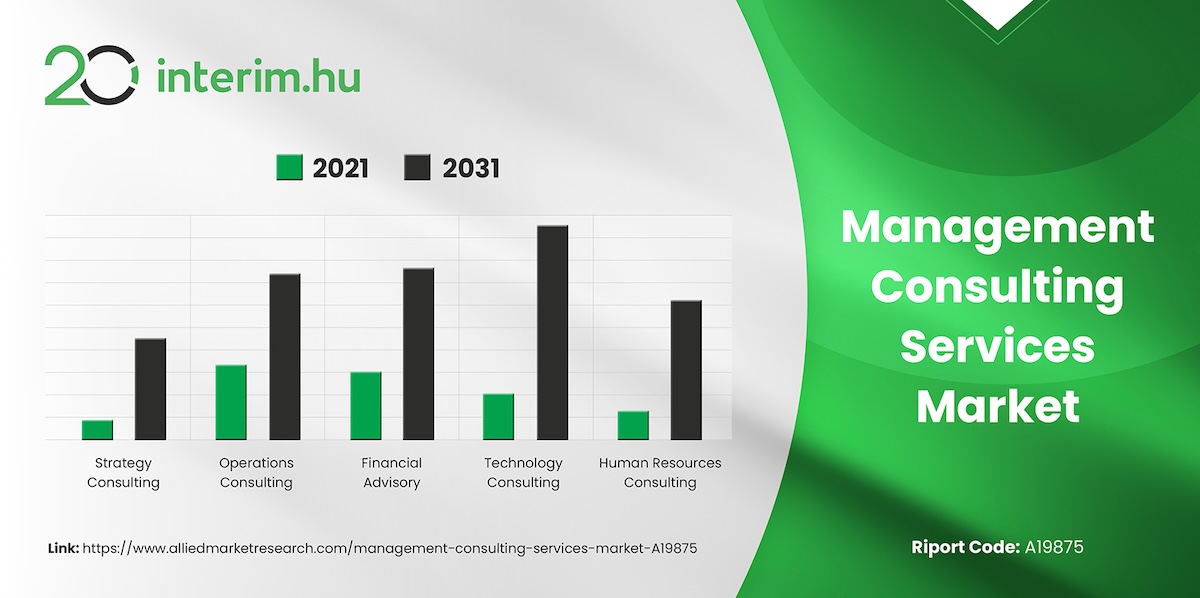Business advice: is this the best way to involve an external expert? Business consultancy involves an external expert making recommendations after assessing the situation. But the interim manager does not just suggest but also ta

Business advice: is this the best way to involve an external expert?
John Sculley, the American businessman under whose watch world brands such as PepsiCo and Apple were formed, said: 'The future belongs to those who see opportunities before they become obvious'. But what if we see the opportunity but are uncertain about the how? That's when business advice is needed! In this article, we'll show you what you need to know about business advice and we'll also look at whether business advice is the best choice for companies.
It is not an easy situation for those who want to run a business today. Managers need to be extremely flexible to respond to the challenges of the environment, from the COVID-19 pandemic, the Russian-Ukrainian war, and the consequences of the chip crisis, to the explosion of innovation and digitalisation that have rewritten economic plans in a short space of time. Those who can respond to these challenges with a short reaction time have a chance to come out of the difficult situation well, or at least to come out of it.

However, it is not all the same in a questionable situation how the leader decides. The responsibility is huge, and it is often difficult to see even the opportunities that are presented. In such situations, managers should utilise their knowledge and experience, and also see if external help or business advice is needed. This is only natural, as no one person can know everything, only the ancient polymaths could do this, or perhaps even they.
Business consultancy is one possible way of bringing in an external expert. The following is an overview of what business consultancy can be used for, when it may be needed and whether it is the best option for companies.
What is business advice for?
Business consultancy is a critical, external look at the situation and the business problem the company is facing, and the expert will use his or her expertise and experience to find the most effective solution. From a longer-term perspective, the main objective is to increase the value of the company, typically by improving performance. This is a huge market: a 2022 publication by Management Consulting Services Market Research estimated the market size at $316.5 billion, and forecasts it to reach $811.3 billion by 2031.
A business consultant has a wide range of knowledge, both general business and management knowledge and industry-specific knowledge. The business consultant first gets to know the company, assesses the situation and the problem, does due diligence and exploration, and then tries to give the best of his knowledge to the client to outline possible solutions and proposals that will help him achieve his business objectives. Once approved, the proposals are implemented, and during the follow-up, the consultant keeps an eye on the changes introduced for a set period.
In what areas might business consultancy be needed?
Based on the area of focus, business consulting can be, for example, financial transaction consulting, technology consulting, management consulting, or risk management consulting. In all cases, the subject of the advice will be determined by the client's objectives, the areas in which the client perceives a gap, and where the client expects to be strengthened.
There are situations where it may be particularly important to involve an external expert who can provide guidance without bias and drawing on their professional experience. Typical situations are:
- If the organisation wants to increase its efficiency: this may require a review of strategy, a review and optimisation of processes, a financial review and the setting up of a performance appraisal system.
- If a generational change is taking place: in this case, a generational change strategy is prepared, a review of processes, finances, reserves, threats and a company assessment is carried out.
- If the plan is to enter a foreign market: when entering a foreign market, the consultant will carry out an assessment of the target market, prepare the capital export and make proposals.
- If crisis management is required: this involves crisis management and stabilisation

According to the Management Consulting Services Market survey, the main categories are strategic consulting, operational consulting, financial consulting, technology consulting and human resources consulting. The research revealed that within business consulting, operational consulting was the most frequently required, followed by financial consulting and then technology. HR and strategic advice were the least requested. However, this is expected to change in the future, with a forecast shift in the focus of advice towards technology advice, followed by financial and operational advice.
What is the difference between interim and consultant?
The work of a business consultant and an interim manager is similar, as both are approached by the company because of a problem or situation that it cannot solve on its own and therefore needs external expertise.

The main difference is that the business advisory service ends in most cases with the approval and start of implementation, and with minimal follow-up, the relationship continues for a limited period. In practice, this means that the consultant, as the name suggests, advises the company on what should be done and how to do it to increase efficiency and results.
The interim expert, on the other hand, does not quit after the advice and plans! The interim manager also takes an active role in implementation, managing the processes and ensuring that the company achieves its objectives within the time and budget set. The interim manager comes to the company with a specific purpose, not as an employee, not looking to move up the ladder, but to reach the target. This is the secret of his effectiveness.
So if companies want not just advice but a solution to a problem, they are better off opting for an interim manager, who will be involved in its implementation and maintenance.
Involving an interim manager's work and experience shows that it useful
Involving an interim manager in any of the situations listed above can bring fruitful results. For example, Interim Ltd. was once contracted by a family business in the US to relocate their production to Western Europe.
The problem was that after the relocation, capacity utilisation was barely 60%. The project was supported by an interim manager with experience in food, manufacturing and large companies. Based on this knowledge, he set out to overcome the production anomalies and raise capacity utilisation to over 90%. The interim manager achieved the targets set in the fifth month and later continued his career as managing director, remaining with the company. The detailed process is summarised in a case study!
In many cases, hiring a business consultant is a wise decision, but if you want to rely on an expert to help you implement your plans, it is better to choose an interim service.